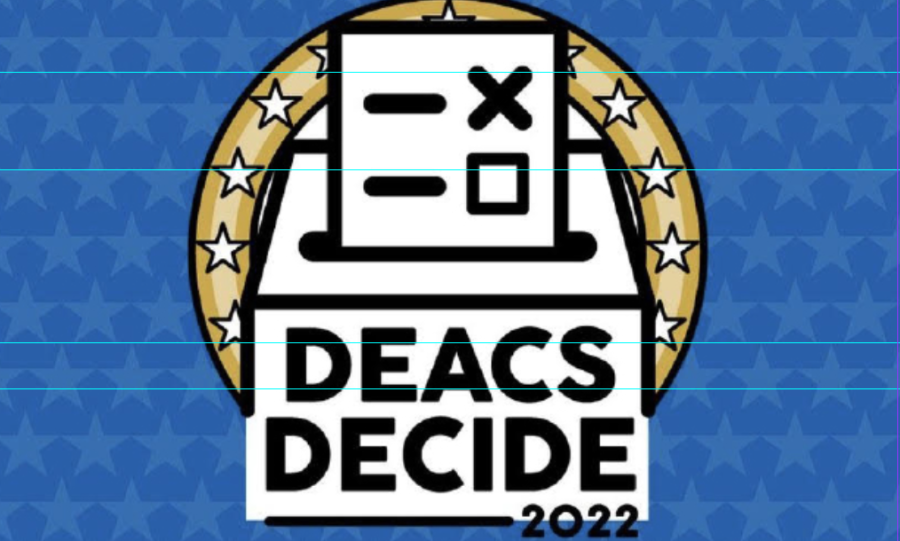Deacs Decide event educates students on misinformation
Wake Forest librarians offer advice on how to prudently consume information this election season
Deacs Decide is a nonpartisan organization that works to register students to vote as well as hosts election-related events.
October 6, 2022
Deacs Decide — a nonpartisan organization that works to register students to vote — hosted an event in Benson University Center on Sept. 29 called “Dinners for Democracy: Cut through the Bullsh*t”. ZSR librarians Rosalind Tedford and Hu Womack gave a lecture on confronting misinformation and disinformation during the upcoming midterm elections while students enjoyed free pizza.
Rosalind Tedford is the Director for Research and Instruction Services. Hu Womack is a member of the Research and Instruction team, and both teach classes about informational literacy.
Tedford and Womack described misinformation as information that is incorrect and can spread unknowingly. They described disinformation as intentionally false information which can be spread knowingly.
“Maybe some elements are true, but more details get added so it’s like a game of telephone,” Tedford said.
Womack defined misinformation as “something that has a kernel of truth which is then twisted and becomes completely inaccurate.”
Freshman Celeste Lynch who attended the event shared how she consumes news and also admits that misinformation is common on social media.
“I get my news from the CNN app, but I do see a lot of misinformation on Tik Tok,” Lynch said.
Tedford and Womack shared habits college students can develop to become better interpreters of media and combat misinformation. Three action steps students can take stood out during the conversation — to seek out credible sources, be aware of cognitive biases and to not spread false information.
Tedford and Womack urged students to not be passive consumers of news. They encouraged students to be intentional in gathering news, particularly by taking advantage of the institutional subscriptions available through ZSR like the New York Times, The Wall Street Journal, The Economist and the Financial Times.
“There is a much better way to get news by using all the resources you have to get the news,” Tedford said.
The discussion also focused on the cognitive biases that are played upon by sources seeking to deceive people and spread lies.
“The human brain makes really horrible decisions when it is stressed and angry,” Tedford said.
Womack spoke about how the human brain is susceptible to fallacies and biases.
“We have ways of making decisions that worked beautifully a millennia ago but were not designed for the internet,” Womack said.
One example used was confirmation bias — which is when a person is more likely to believe an idea that already supports preexisting beliefs they hold. Additionally, Womack spoke about people falling victim to the backfire effect.
“If you prove to me that I’m wrong, all that does is make me double down, and that’s the backfire effect,” Womack said.
Additionally, Tedford and Womack advised students to break the cycle of misinformation and disinformation by not interacting with or spreading false content online. Even sharing information to say it is false is harmful because algorithms see the engagement and spread it further.
“Spend your time online on things you think that other people really need to see,” Tedford said.
Freshman James Watson, an organizer of the event with Deacs Decide, explained the importance of events like these that improve the news literacy of college students.
“To have a better and more empathetic society we have to pay close attention to what information we take in and how we do it,” Watson said.
Deacs Decide will be hosting additional dinners in the coming weeks about voting, and the organization also offers support in helping students register to vote.






















